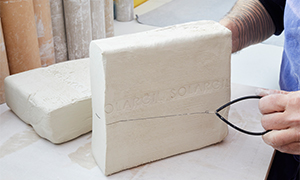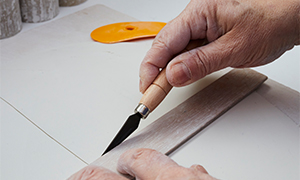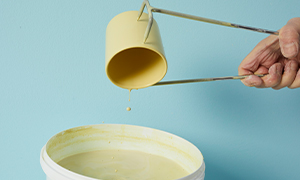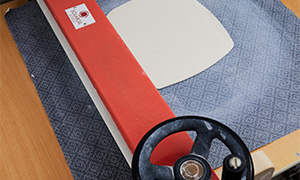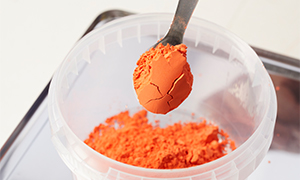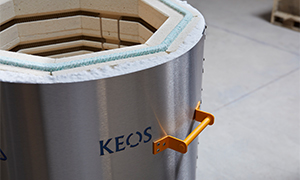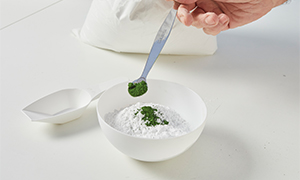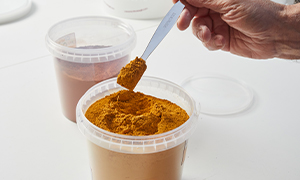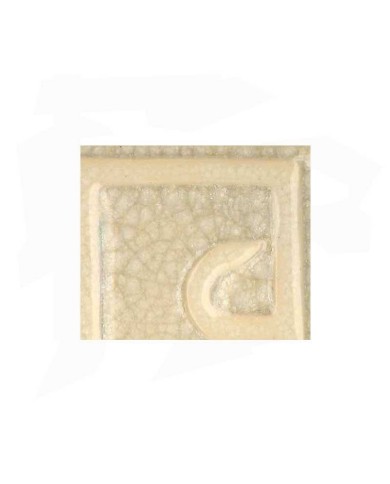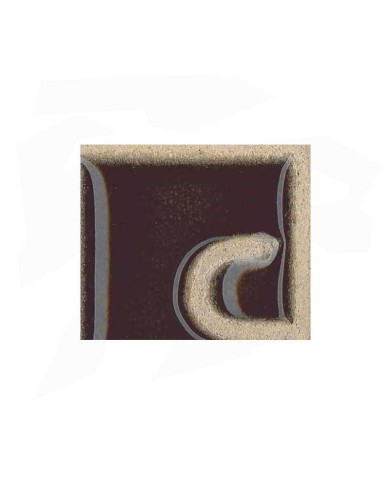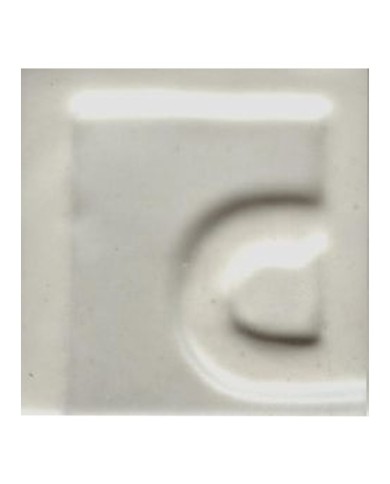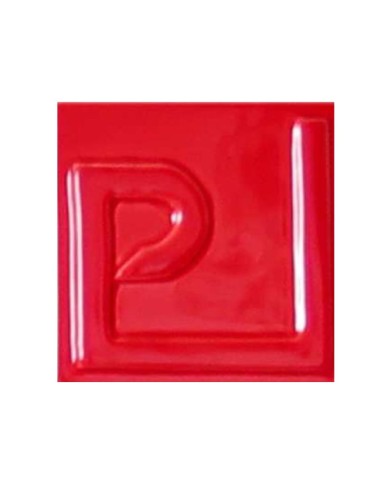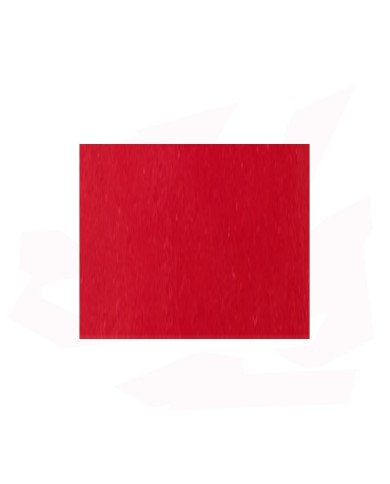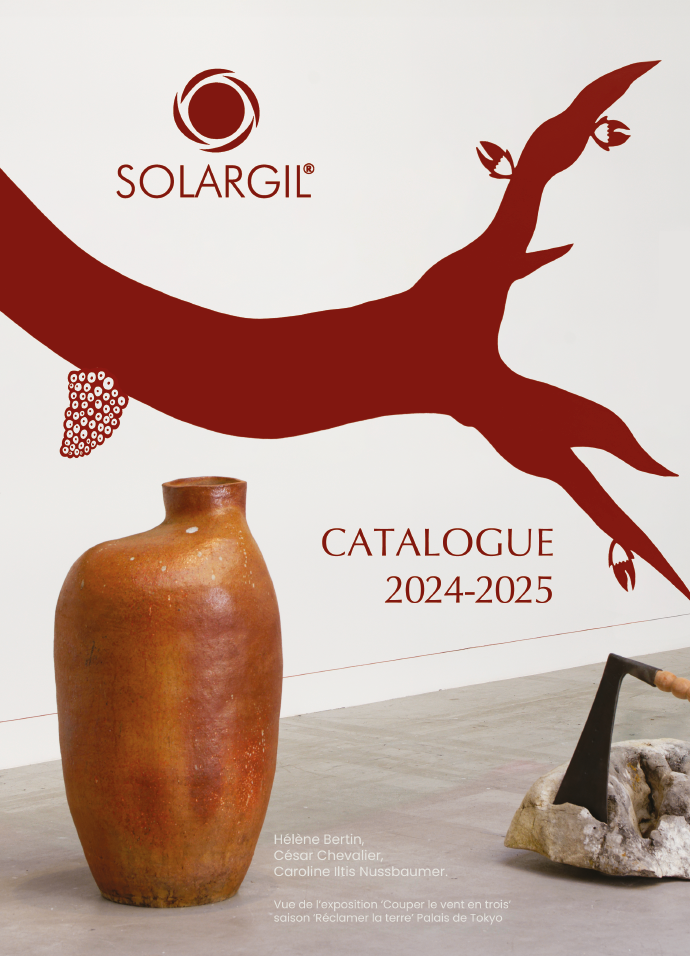TRANSPARENT GLAZE BIG THICKNESS UNLEAD : GE400
Transparent
Ref : GE400
Transparent glaze "big thickness" without lead.
For earthenware paste: Glazes from this range can be used as classical crackled glazes, so in a fine undercoat and for a firing at around 980°C.
For stoneware and porcelain paste already fired at high temperature: in order to create an effect of melted glass. Préparation of the glaze in high density and application in thick undercoat. If necessary, use the médium Sérograf instead of water. Firing at 980°C
Another possibilities: application on a bisqueware piece in hollow area or with edge of stoneware or porcelain paste.Firing at 1280 °C
Advice :
Firing temperature 950°C - 1280°C
Transparent glaze black - GE307
Transparent glazes "big thickness" with lead.
For earthenware paste: Glazes from this range can be used as classical crackled glazes, so in a fine undercoat and for a firing at around 980°C.
For stoneware and porcelain paste already fired at high temperature: in order to create an effect of melted glass. Préparation of the glaze in high density and application in thick undercoat. If necessary, use the médium Sérograf instead of water. Firing at 980°C
Another possibilities: application on a bisqueware piece in hollow area or with edge of stoneware or porcelain paste.Firing at 1280 °C
Advice :
Firing temperature 950°C - 1280°C
Matte transparent enamel - G 1005
Composed of Frit.
Transparent satin zinc and lead enamel.
Can be easily colored.
One must take into account the fact that zinc oxide can be bad to develop certain oxides dyes.
We recommend applying it for white paste and thin layer to avoid opalescences.
The firing temperature varies between 950-1000ºC.
Calcareous Silico Alcalino frit (SIO2 NAKO) - FR4
FRIT FUSION F644 WITHOUT LEAD
Fusion frit F644
Without lead
Firing temperature : 980 °C
White partition F4313CD
This a set of specific glazes for the Cuerda Seca technic.
Black F4312 and White F4313 are powders to mix with Copaïva balm to draw partitions.
Inside these plans, you put glazes with brushes ou with syringe.
Colors are used deluted with water to obtain a thick mix.
CS200 is usable on red bisqueware : they are opaque.
CS set400 is usable on white or light medium : they are transparent.
All these colors can be mixed together excepted Red CS210 and Orange CS211.
Colors don't flow, even used in the vertical way.
Firing temperature : 940-1050°C
Black partition F4312CD
This a set of specific glazes for the Cuerda Seca technic.
Black F4312 and White F4313 are powders to mix with Copaïva balm to draw partitions.
Inside these plans, you put glazes with brushes ou with syringe. Colors are used deluted with water to obtain a thick mix. CS200 is usable on red bisqueware : they are opaque.
CS set400 is usable on white or light medium : they are transparent.
All these colors can be mixed together excepted Red CS210 and Orange CS211.
Colors don't flow, even used in the vertical way.
Fiiring temperature : 940-1050°C
Cristalization frit F413
Without lead
Firing temperature : 980 °C
Melting without lead for série P fuschias- F15
GROUPE I
Firing temperature: 950-980°C
Coloured transparent red glaze suitable for red clay ES990
With lead
Firing temperature : 960-1040°C

